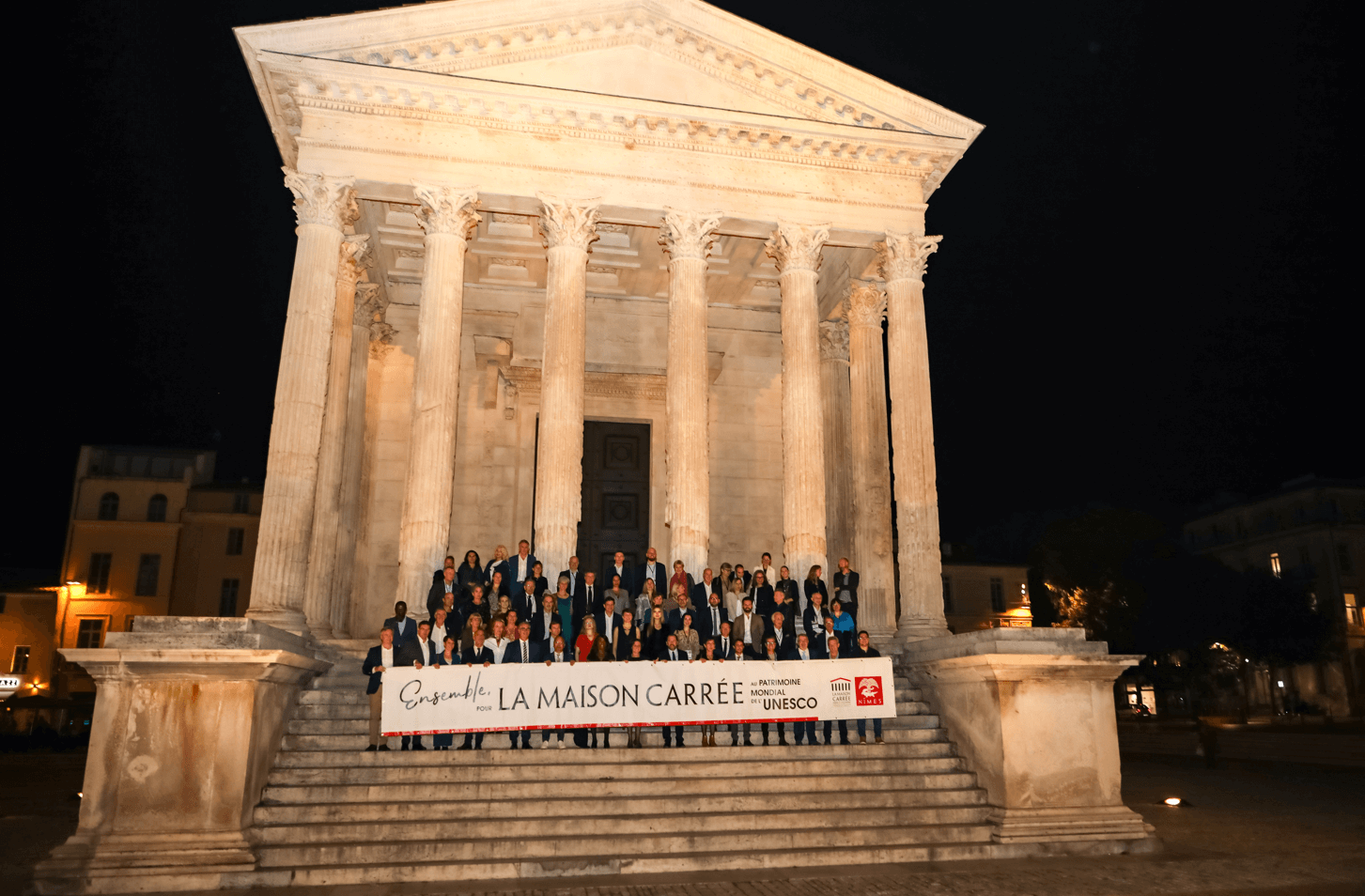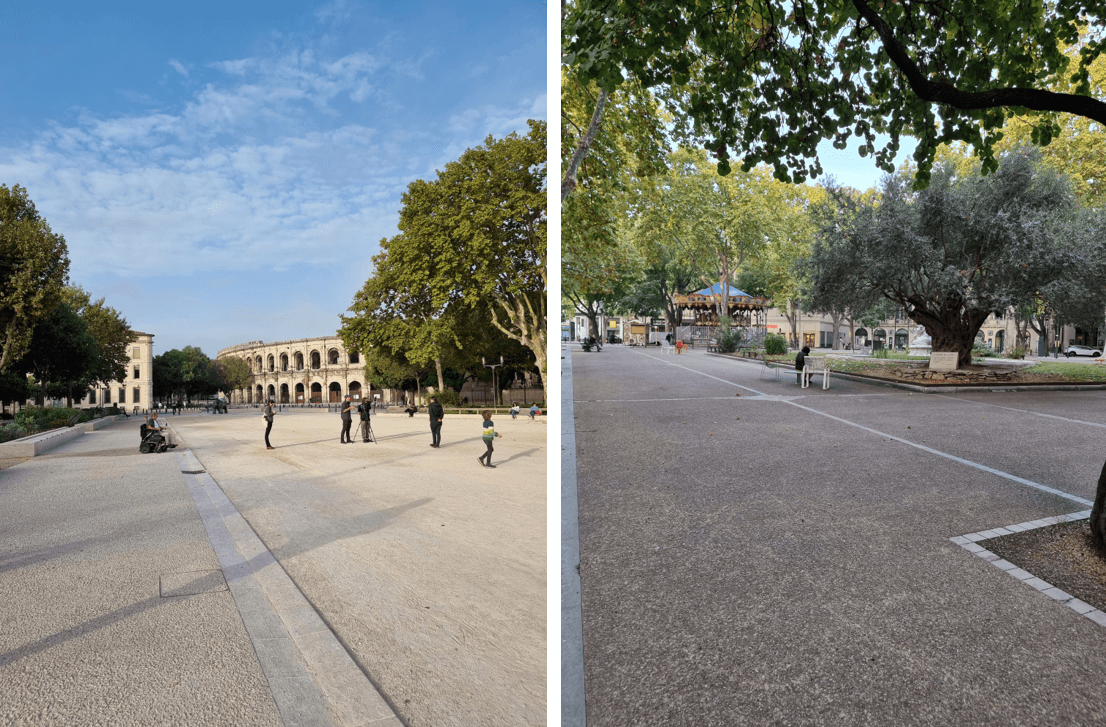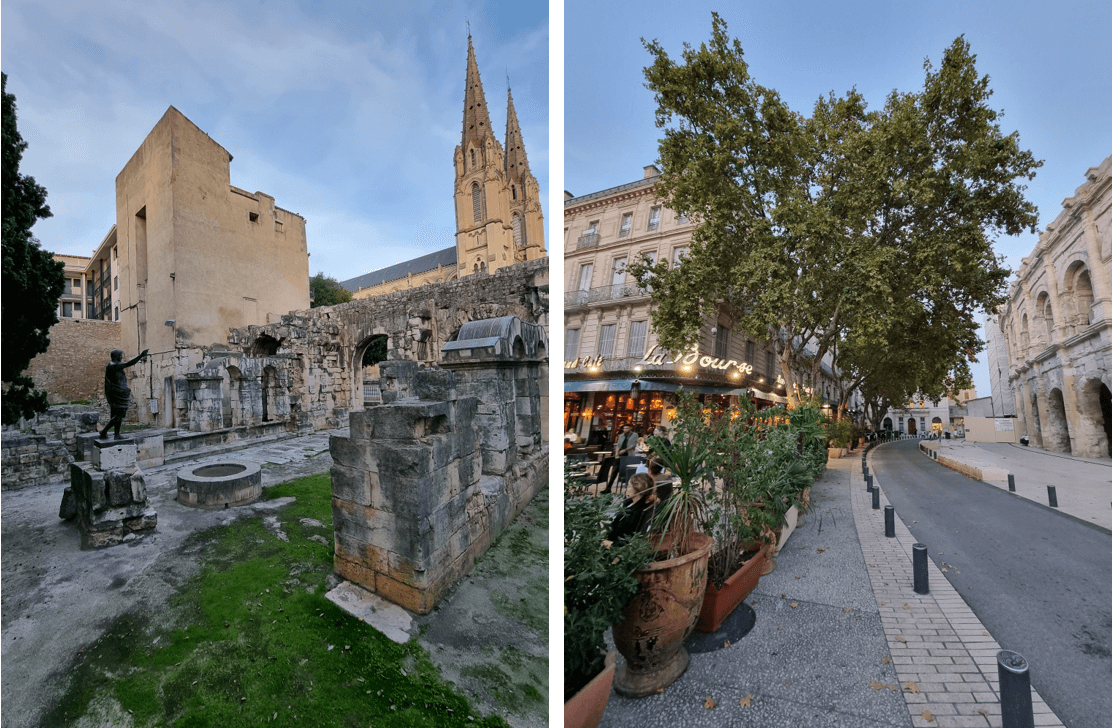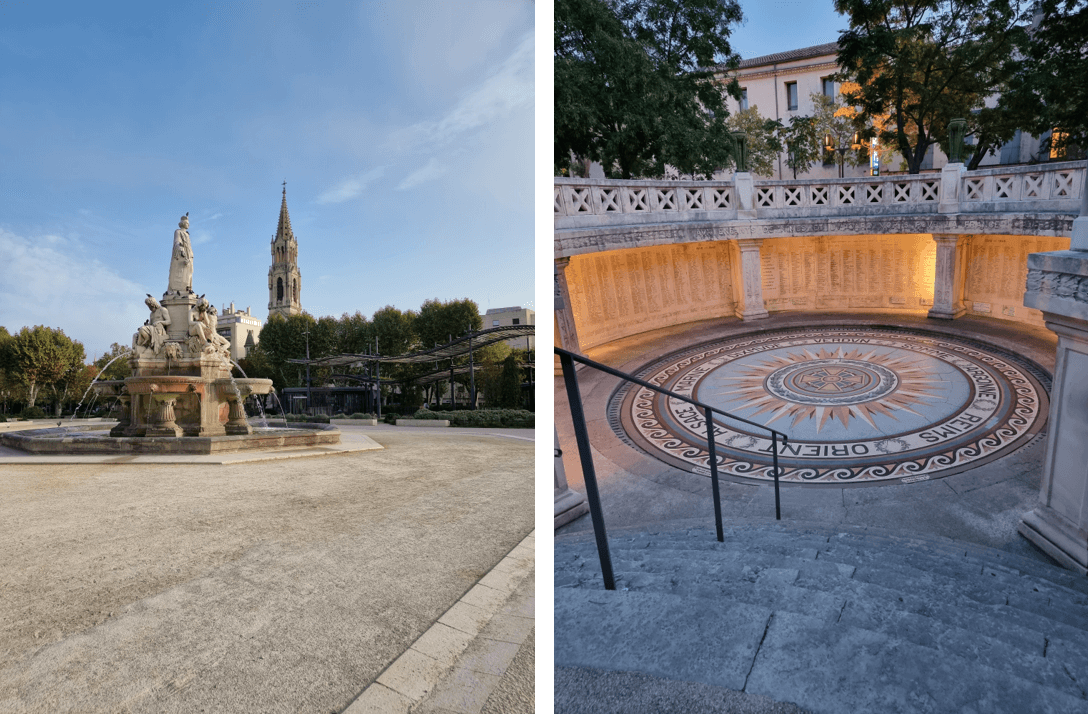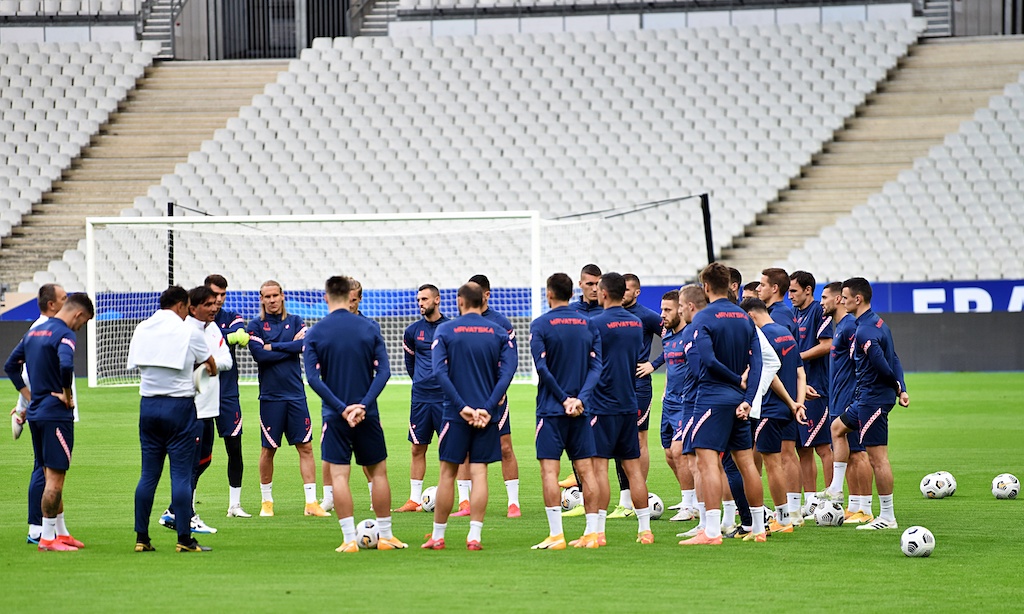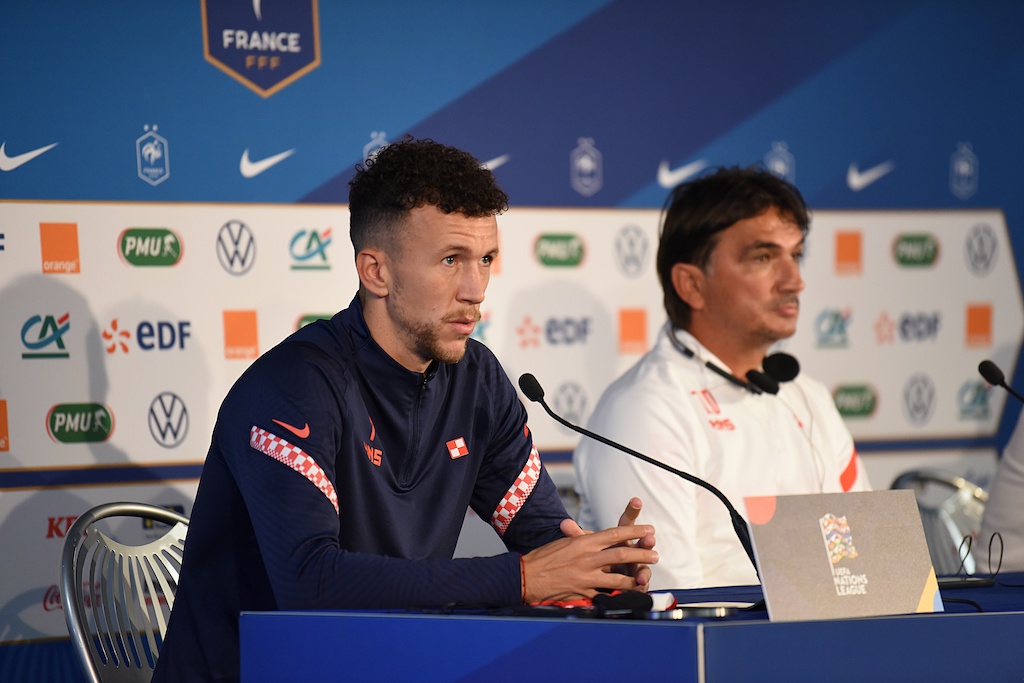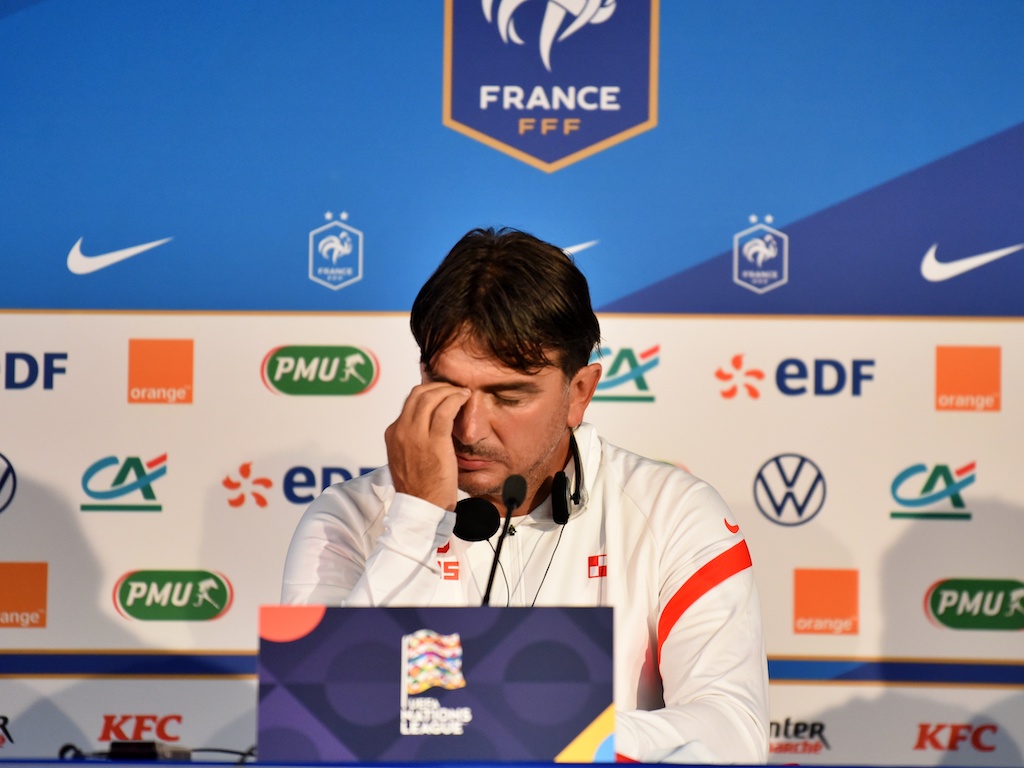26 June 2021 - One TCN intern interviewed four young French people who recently moved to Croatia about their everyday life, impressions, and preferences here. A look at how French youth live in Croatia.
They came to Croatia for different volunteering projects regardless of coronavirus pandemic, but likely would recommend their new abode to fellow countrymen as a good place to survive quarantine. The luckiest of them Mathias (26) got a chance to arrive in Split in February 2020, Axelle (22), and Clemence (22) joined him nearly a year later. Mathilde (23) came to Zagreb sometime between this period, in September 2020.
Is the weather similar to Nice?
The climate is continental – low temperatures in winter and high temperatures in summer. “In Zagreb, there is often a fog during the winter,” Mathilde shares. Thick fog looks unusual for newcomers and from time to time creates true ‘Silent hill’ views in Zagreb country. “It’s not windy, but you don’t see the light of the sun during two months,” she continues.
On the contrary, Split is a windy city, however, even during the winter the sun shines a lot. There are winds in France, Mathias notes. He fails to find a French analog to the well-known Split ‘bura’, a cold north-west wind that long till 10 days in winter. But there is ‘mistral’ wind in France, similar in the name and effects to Croatian ‘maestral’ that comes to Split from the north-east in summer.
If you’re sensitive to weather, you’ll probably feel winter winds in Split. Summer winds will help you. The wind cools the atmosphere, thus summer heat is handled easier in the Dalmatia. Axelle and Clemence who came to Split for spring and summer characterize the weather solely as perfect. Both moved from the northern part of France and began to enjoy sunbathing here. Mathias compares the climate in Split with Nice. “Similar in many senses… Apart from the landscape – there are more islands and mountains in Croatia,” he said.
Is air-con needed?
My French respondents almost don’t use air conditioning. Mostly they don’t have a need for it. Axelle actually doesn’t know whether there is any air conditioner in their office. The office is situated on the first floor, it’s cool there. As for apartments it’s normally equipped with air conditioning systems. However, girls in Split are satisfied by shade from the inner yard of their house. During the summer, they just open windows wondering for what purpose these double shutters are designed. They’ve never met such a design in France. Mathilde doesn’t use the air conditioners for ecological reasons. It pollutes the atmosphere a lot.
Why do you apricot jam in a croissant?
Young people are usually simpler with food. Two of them are vegetarians, but they easily adapted to Croatia. “In France, we consume a lot of cheese,” Axelle claims. You can buy some basic cheese here like Emmental, you can buy soft cheese like mozzarella and feta. Mathias who isn’t a vegetarian, but a foodie confirms that fact. “There is a huge lack of French cheese .” You’ll survive, but you’ll miss cheese. “I need cheese in my life,” Axelle says and goes to buy it without looking at brands.
On the plus side, there are many fresh vegetables in Croatia. Mathilde enjoys visiting open markets – you can talk, practice Croatian, create links with people, and support local producers. And prices are cheaper than in the supermarket. Furthermore, the open market challenges your traditional tastes. While as in supermarket you’re guided by familiar names on the shelves, open market encourages you to improvise and try something new. Clemence started to eat much more vegetables in Croatia. Mathias who also visited the fish market has enriched his nutrition with seafood.
Food prices in Croatia are lower than in France. However, moving here you should configure your expectations correctly. Prices are lower, but not really low. And, of course, this isn’t about imported items. As a result, Clemence eats less ‘Nutella’ here. Hopefully, it was not a huge loss. Mathilde praises Croatian pastries, whereas she loved French pastries as well. ‘Burek’ is a universal pleasure; it has vegetarian options with cheese or spinach. ‘Burkifla’ or ‘strudla’ are a nice choice for the sweet tooth. The only stuff you should be careful with is a croissant. In Croatian bakeries, they often offer croissants with apricot jam (‘marelica’) and French often describe its taste as disgusting. Just clarify on a cashier that you want a normal croissant!
Wine is wine, if you do it in France, you’ll probably die!
Apart from croissants with apricot jam, one more strange thing the French can occasionally order in a cafe is coffee with cold milk. It’s better to specify what kind of milk you want – hot or cold, because during the summer season Croatian cafes often serve coffee with cold milk as in southern Europe. Axelle came from northern France and never expected to have something hot ordering a coffee. Otherwise, typical for the Balkan region ‘Turkish coffee’ is rarely found in modern Croatia. Expats including my respondents from France don’t like it. “First 2-3 sips are ok, but next you feel this nasty coffee ground…”
A coffee drinking culture must be attributed to the advantages of life in Croatia. You can take one coffee and stay for 3 hours. “You can’t do it in France. If you stay more than an hour, it’s anticipated you will order one more coffee or another drink,” Axelle explains to me. And it’s not only about the economics of cafes. In France, you sit in a cafe for half an hour and then go back to your business. In Croatia, there is this chill way of life. You drink a coffee, chat, and sunbathe, and don’t hurry. Croatians consume a lot of coffee. When it’s too much for Clemence and Axelle, they switch to beer. Mathilde hates coffee, however still has a lot of Croatian friends. She drinks hot chocolate. She misses 'churros’ to hot chocolate.
Mathias spent enough time both in Split and Zagreb and would prefer Zagreb cafes and bars rather than Split ones. Such places have more variety, events, and different peoples there. Mathilde who is been living in Zagreb for almost a year doesn’t attach importance to it. She’s not a huge bar lover. She settles for ‘Antibar club 44’ where she holds her French evening with students. Axelle and Clemence also have their favorite place to drink in Split. In ‘Tri volta’ there is no crowds or fancy drinks as ‘ice coffee’ or ‘Aperol spritz’, but the location and atmosphere are great.
In public drinking beyond bars and its terraces, the biggest surprise for the French was a way of drinking wine. Croatian youth usually dilute wine. Red wine plus coke has the special name ‘bambus’. White wine is diluted by sparkling water. Both kinds of wine can be watered down. This practice has a simple explanation: diluting enhances the taste of cheap wine that youth usually buy. Also, this practice is known in Italy and Spain, but not in France. Wine is wine, Axelle claims emotionally. “If you do it in France, you’ll probably die!” Clemence echoes.
Let me pay for anything!
Nobody from my young respondents spends much money on entertainment mainly because of plenty of outdoor activities. Mathias became a true expert in hanging out with people in Split. This activity requires only being at the right place at the right time. That is late in the evening on Matejuska pier and after midnight on Ovcice beach. Girls prefer Matejuska, because the public is more varied there. Youth and locals gather on Ovcice beach. In fact, Axelle and Clemence once visited the Croatian party where they were the only foreigners. It was not bad, however, it’s certainly easier to start a conversation as the majority speaks English.
Axelle shares that she would like to visit the ‘Froggyland’ museum in Split. Till the moment she didn’t manage it. With Clemence and other friends, she also tried to go to the cinema, but finally, it was ‘sold out’. Split actually discourages finding these kinds of entertainment. When you have leisure time, go straight to the beach, read a book in the shade, relax, run along a coastal line – there are so many easy ways to enjoy in Split. Mathias concludes that museums didn’t impress him and the cinema was normal. You can watch original American or French movies with Croatian subtitles.
Mathilde has succeeded to go to the cinema about 10 times. Interested in art she visited several museums in Zagreb. She’s visited once a classical concert at the Croatian National Theater. It’s a pretty good cultural gathering, although Mathilde recognizes that she would have better if it were not for the language barrier. She doesn’t go to the cinema or museum spontaneously, only when friends invite her. A pleasant surprise is that an inviter pays. Croatians are very welcoming and open people, thus you often fall into situation “Let me pay for anything!”
Where is the name of the bus stop?
Croatian hospitality is one of the reasons to make traveling your hobby here. Mathias and Axelle recall the other reasons. Croatia is a comparatively small country, most destinations are easily reached. There are a lot of historic towns, wonderful nature places. Islands aplenty stand alone. “You go on the islands and suddenly feel like you are in another county on vacation. I like island vibes!” Axelle and Clemence visited Vis together loved the nature of the island-geopark.
Zagreb is a student city in Croatia. There are more students and more expats as well than in Split, therefore society seems more liberal and open-minded. Varazdin looks like a typical Central European town. Pula is pretty boring during the winter, but nice in summer, Mathias lists his travel within the country. “I’m not a fan of Slavonia. This is not a region for tourists, except Vukovar, maybe, for those who are interested in history. It’s good to visit when you live in Croatia for a long time,” he says.
Split is a very special story. Mathilde surprises by its closeness to mountains and sea. French who constantly live in Split loves it for a combination of historical heritage and daily dynamic life. “Diocletian’s palace is a miracle, Clemence tells. I like to go for a walk there. And now after many walks, I can say that I really know it.” Axelle stresses one more advantage: “A lot of sights are situated next to Split – Solin, Klis fortress, etc.” Omis, a tiny city with rocks is suited for hiking, meanwhile, there are enough hiking places just by the way from Split to Omis.
In regards to transport within the country Mathias’s used to prefer trains in France. A train as a comfortable and ecological means almost doesn’t exist in Croatia. It’s a disadvantage. But my French respondents quickly learned how to deal with buses. They usually travel by bus. The fact that bus stops in Croatia have no names was a little challenging for the first time. Axelle remembers how she was checking her way on Google maps. “It just takes some getting used to. In France each stop has a name.”
Could you, please, write down the name of this movie in Croatian for me?
“I don’t see any difference in culture between France and Croatia,” Mathilde states. The point is that the French consider ‘culture’ as a broad concept, barely the same that ‘civilization’, i.e. Croatia relates to the same European Christian civilization as France. Looking in-depth Croatian culture is not well-known in France.
Axelle purposely read about Croatia before coming here to have basic grounding. After 4 months in Split she knows, for example, Split raised pop-diva Severina. Clemence listens to rapper Nucci. Although he’s from Serbia, his music can be related to the ‘Balkan turbo-folk genre. They would like to know more popular songs, movies. etc. Croatians are glad to recommend some good stuff, but a problem is that they pronounce names in Croatian, and it’s difficult to catch and to remember too.
'Pomalo’
My respondents note the obvious visual difference – there are only white people on the streets. Society is more homogeneous. Dress is more homogeneous as well – no brassy, no sexy. “Don’t distinguish yourself,” the Zagreb expat concludes. Otherwise, Mathias and Clemence report that in Split people care about appearances much more, than in cities of France. Clemence is used to seeing fancy girls with big sunglasses and other attributes in Split every day. “Even on Monday morning… Once I was walking down the street in my probably worse-than-usual, after-party look. These girls looked at me really oddly…” she remembers.
Streets are cleaner in Croatia. It’s clean in France, Axelle stands up, but you can see some trash from time to time. Croatians are not taught since childhood to sort the garbage, to recycle as much as it’s done in France. “From the first glance they seem less informed, but in real life they’re more concerned,” Clemence shares her observations. Streets are safer too. “I feel really safe here. I have no fear,” French girls from Zagreb and Split agree in this. In France, you’d better go in a group of 2-3 girls together at night. And anyway somebody will impose a conversation, follow you. In Croatia, you can calmly be alone on a street at any time.
In memory of their blissful stay in Split two of my respondents and one more French girl did tattoos with the Croatian word ‘pomalo’. It’s literally translated as ‘slowly’, ‘quietly’, ‘little by little’. “Our tattoos mean more than literal sense. I mean more when I say ‘pomalo’ Clemence explains. ‘Pomalo’ commonly used to describe a Dalmatian/ Croatian mentality in one word: ‘take it easy’, ‘don’t rush’, ‘with pleasure’, ‘relax’, ‘hello’, etc.
For more, follow our dedicated lifestyle section.


